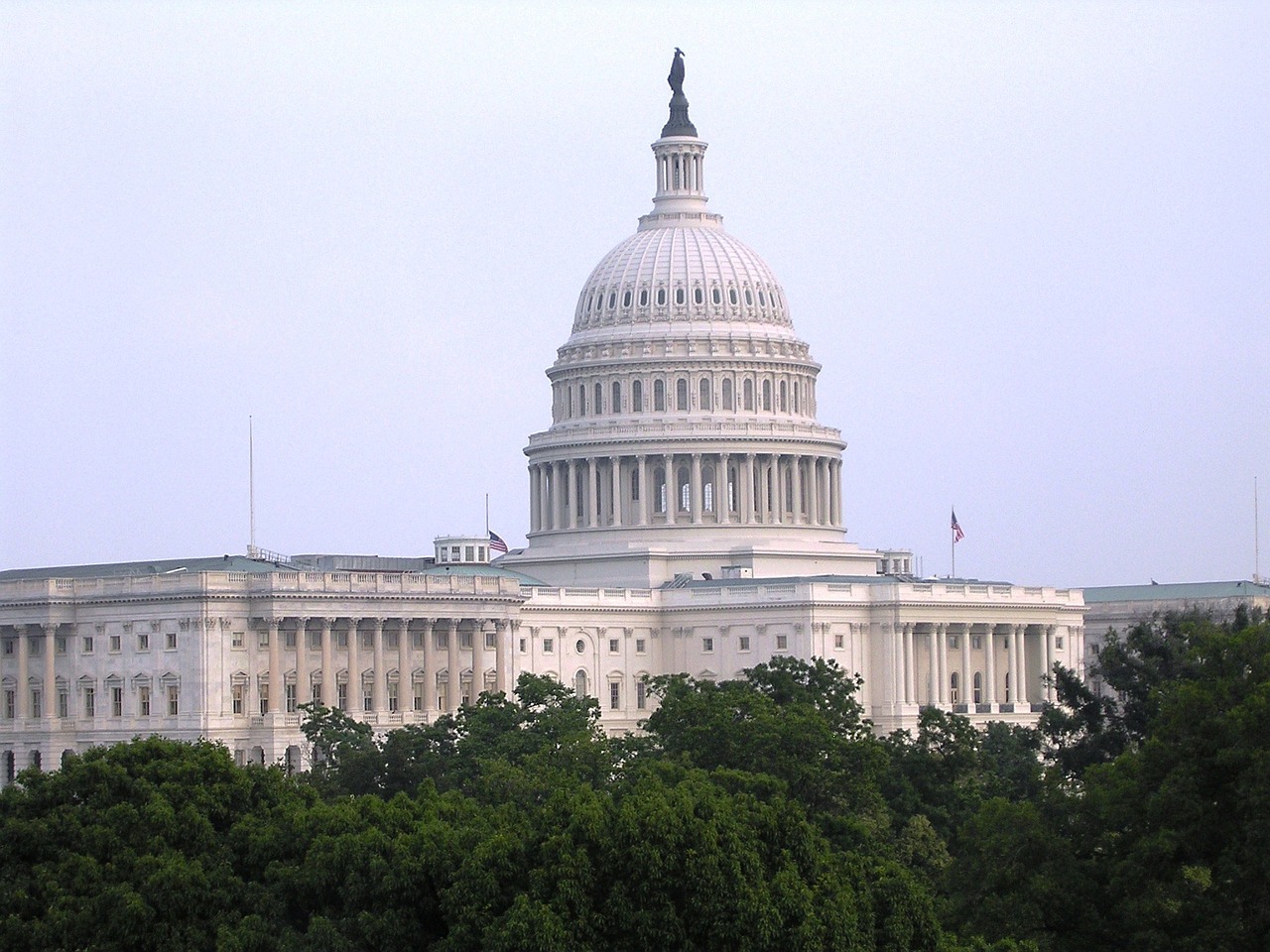On June 4, 2024, the Institute for Free Speech sent a letter to Speaker of the House Mike Johnson and House Minority Leader Hakeem Jeffries sharing concerns about the unprecedented impact of Section 2 of H.R. 8293 (the “American Donor Privacy and Foreign Funding Transparency Act”) on America’s First Amendment rights.
Read the PDF of the letter here.
June 4, 2024
The Honorable Mike Johnson
Speaker
U.S. House of Representatives
Washington D.C. 20515
The Honorable Hakeem Jeffries
Minority Leader
U.S. House of Representatives
Washington D.C. 20515
RE: H.R. 8293 – American Donor Privacy and Foreign Funding Transparency Act
Dear Speaker Johnson and Leader Jeffries:
On behalf of the Institute for Free Speech,[1] I am writing to express our deep concerns about the unprecedented impact Section 2 of H.R. 8293 (the “American Donor Privacy and Foreign Funding Transparency Act”) could have on Americans’ First Amendment rights.
Section 2 of this bill would require tax-exempt (Section 501(c)) organizations to report publicly to the IRS the aggregate amount of contributions received from any “foreign principal” grouped by country. As written, this violates the First Amendment, is unnecessary, and poses many practical problems that will severely harm the ability of American citizens to join nonprofit groups and speak jointly about matters of public concern.
First and foremost, Section 2 is unnecessary. The Foreign Agents Registration Act (FARA) already imposes broad registration and disclosure requirements on people and organizations that advocate on behalf of foreign principals. While FARA has its own constitutional problems, it is neither necessary nor advisable to compound those issues by adopting an additional layer of forced reporting and disclosure.
Second, Section 2 would effectively impose a mandate on all 501(c) organizations to verify the citizenship of each donor. After all, to report donations from foreign principals, organizations first have to know if their donor is a foreign principal. This is difficult, if not impossible. Foreign principals may have U.S. bank accounts or U.S. mailing addresses, and U.S. citizens may reside overseas. Thus, citizenship is not apparent on the face of a donation. Hence, 501(c) organizations would need to spend enormous amounts of time and money developing procedures to look beyond the face of a donation to verify the citizenship of their donors.
As written, the bill appears to impose a strict liability obligation on organizations. This would be an onerous requirement, effectively requiring nonprofits to obtain proof of citizenship from all donors, including American citizens, to ensure compliance. This goes beyond what even the Federal Election and Campaign Act of 1971, as amended, requires of candidates, political parties, and political committees, which are prohibited from accepting foreign contributions.[2]
Third, as written, the bill’s requirements are not limited to large donations. There is no de minimis exception. So, nonprofit groups would often have to spend more time and money verifying the identity of contributors than the contribution is worth.
All of these issues would severely chill Americans’ exercise of First Amendment rights. Establishing and maintaining a 501(c) organization is already complicated. Adding additional layers of complexity is likely to dissuade Americans from forming, continuing, or joining nonprofit groups and participating in our civic life.
In addition, requiring organizations to collect citizenship information about their donors will cause a sharp decline in contributions. Many potential donors will refuse to provide the necessary paperwork to make donations to the causes they support. There will also be foreign nationals who do not want to risk having their association with an American 501(c) organization subject to potential exposure because of potential harm to themselves or their families by authoritarian regimes.
Finally, this bill would harm American 501(c) organizations by stigmatizing them as potential agents of foreign influence.
When foreign countries adopt laws like this, we have no trouble recognizing this as an assault on freedom. The country of Georgia recently adopted a somewhat similar measure to require nongovernmental organizations that receive certain levels of foreign support to “label themselves as ‘organizations serving the interest of a foreign power.’”[3] National Security Advisor Jake Sullivan referred to it as a “Kremlin-style foreign agents’ law that runs counter to democratic values,”[4] and a bipartisan group of Senators is reportedly introducing legislation to sanction politicians supporting the law.[5]
We cannot defend democracy and civil society abroad while threatening it at home with poorly drafted measures such as Section 2 of H.R. 8293.
Sincerely,
David Keating
President
[1] The Institute for Free Speech is a nonpartisan, nonprofit 501(c)(3) organization that promotes and defends the First Amendment rights to freely speak, assemble, publish, and petition the government.
[2] See 11 C.F.R. § 110.20 (prohibiting persons from knowingly soliciting a contribution from a foreign national and establishing a safe harbor for conducting reasonable inquiries).
[3] Mary Ilyushina and Francesca Ebel, Georgia Parliament Approves ‘Foreign Agent Law,’ Defying Protests, Wash. Post (May 14, 2024), https://www.washingtonpost.com/world/2024/05/14/georgia-foreign-agent-law-approved/.
[4] https://x.com/JakeSullivan46/status/1789098646232871329.
[5] See Gabriel Gavin, US Senate to Consider Bipartisan Georgia Sanctions Bill as ‘Foreign Agent’ Row Rages, Politico (May 23, 2024), https://www.politico.eu/article/us-senate-consider-bipartisan-georgia-sanctions-bill-foreign-agent-row-rages/; see also Gabriel Gavin, US Could Snaction Georgia Politicians to ‘Defend Democracy,’ Politico (May 20, 2024), https://www.politico.eu/article/us-sanction-georgian-dream-party-politicians-foreign-agent-law-asset-freezes-travel-bans-democracy/.














